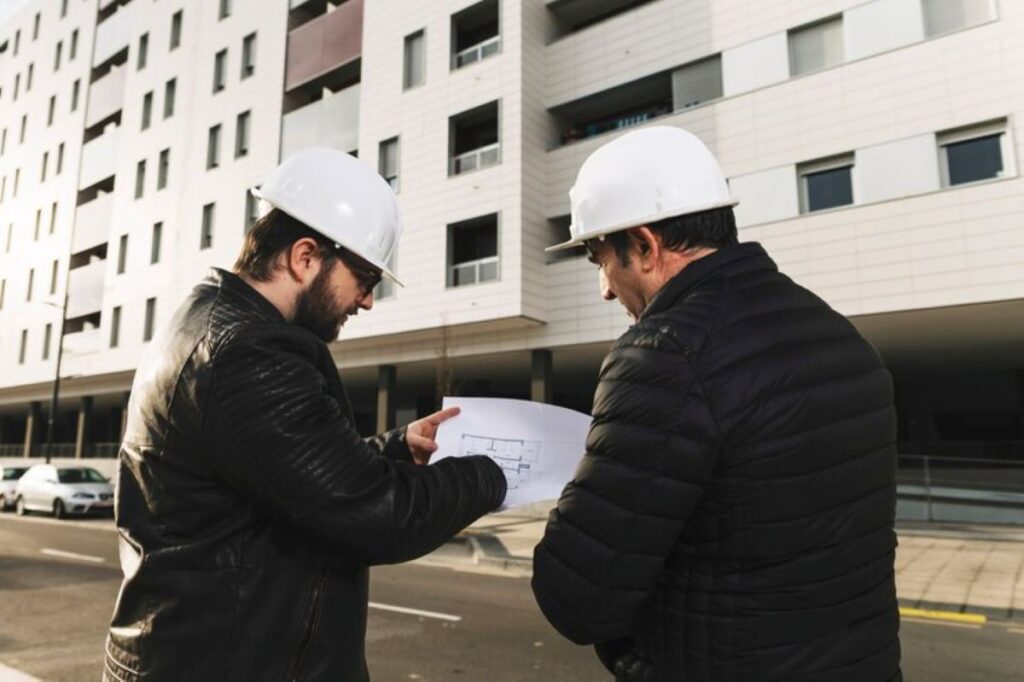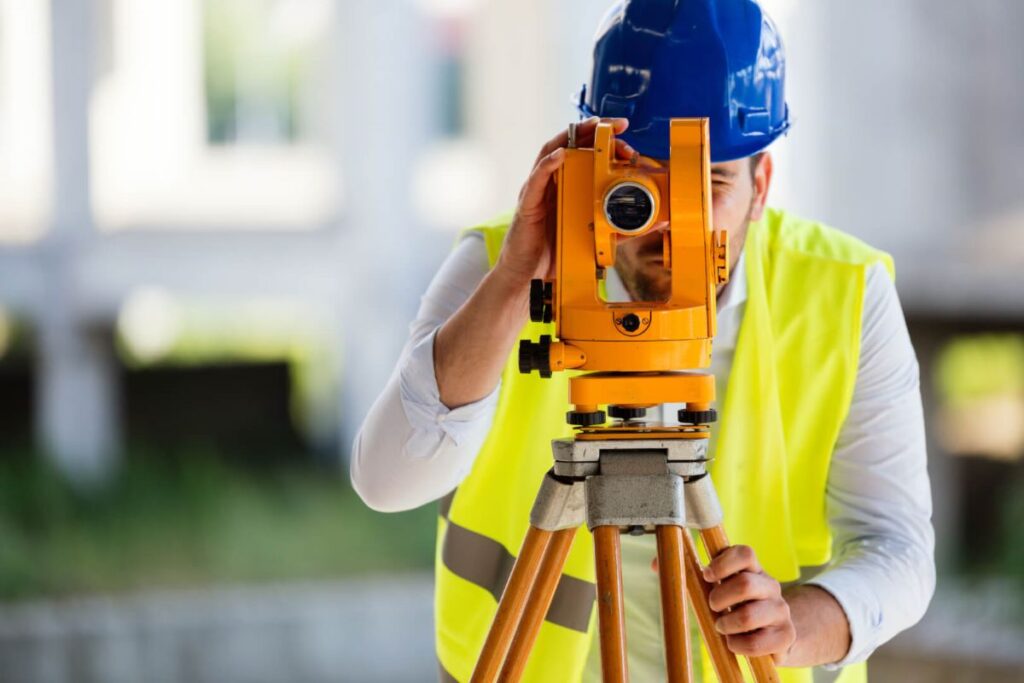In the complex world of real estate development, understanding the various components that contribute to the success of a project is crucial. Among these components, survey services play a pivotal role that cannot be overlooked. This article explores the definition, types, processes, and impacts of survey services in the realm of real estate development.
Understanding survey services in real estate
Survey services encompass a range of professional practices that involve measuring and mapping the land and property for development purposes. They provide essential data that informs various stages of property development, ensuring that projects comply with legal standards, zoning regulations, and safety requirements.
Defining survey services
At its core, survey services refer to the measurement of land, definitions of property boundaries, and mapping of topographical features. These services may include a variety of techniques such as land surveying, geodetic surveying, and GPS surveying. Once complete, these surveys produce detailed records that are crucial for developers, architects, and planners who aim to ensure accurate designs and constructions.
The role of a surveyor extends beyond simple measurements; they may also offer advice on property layout and design, helping to optimise land use. This is particularly significant in urban areas where available space is limited and maximising potential is vital. By obtaining accurate survey data, developers can make informed decisions from the outset. Additionally, surveyors often utilise advanced technology, such as drones and 3D modelling software, to enhance the precision of their work. This innovative approach not only streamlines the surveying process but also provides a comprehensive view of the land, allowing for more strategic planning and development.
The importance of survey services in real estate
Survey services are integral to real estate development due to the critical information they provide. Without reliable data on property boundaries, zoning laws, or environmental features, developers risk costly missteps that could derail projects. For example, encroachments on neighbouring properties can lead to legal disputes that arise from unintentional boundary violations.
Furthermore, obtaining accurate surveys aids in reducing unforeseen expenses during construction. Knowledge of topography and land use restrictions allows for better planning of drainage systems, foundations, and building layouts. Ultimately, this promotes efficiency and cost-effectiveness in any development project, demonstrating the value of professional survey services. In addition to these practical benefits, survey services also play a vital role in environmental conservation. By identifying sensitive areas and natural resources, surveyors can help developers implement sustainable practices that minimise ecological impact, ensuring that development projects align with environmental regulations and community expectations. This holistic approach not only safeguards the environment but also enhances the long-term viability of real estate investments.
The different types of survey services in real estate
Understanding the various types of survey services available in the real estate sector helps developers and stakeholders choose the right approach for their specific needs. Different surveys serve distinct functions, each providing unique insights into land and property development.
Land surveys
Land surveys are perhaps the most common type of survey service and are foundational to real estate development. These surveys determine property lines and boundaries, ensuring that developers understand the exact dimensions of their land. They often involve a combination of physical measurements taken on-site and comprehensive documentation of existing records.
In addition to defining boundaries, land surveys may also include assessments of easements and rights-of-way, which can hinder or facilitate development. Understanding these factors is critical for ensuring compliance with local regulations and avoiding legal issues in the future. Furthermore, land surveys can reveal historical land use patterns, which may influence future development plans. For instance, if a parcel of land has been used for agricultural purposes, there may be specific zoning restrictions or environmental considerations that need to be addressed before proceeding with new construction.

Structural surveys
Structural surveys are designed to assess the physical condition of existing buildings and structures. This type of survey is especially crucial when developers are considering purchasing or renovating older properties. A structural survey identifies any potential issues such as foundation problems, structural weaknesses, or concerns with building materials.
By understanding the state of a structure, developers can make informed decisions regarding necessary repairs or renovations, ultimately contributing to project viability and safety. This preventive approach saves time and money by addressing issues before they become significant setbacks. Additionally, structural surveys can provide insights into the historical significance of a building, which may impact renovation choices. For example, developers may need to adhere to preservation guidelines if a property is listed as a heritage site, thereby influencing both design and budget considerations.
Valuation surveys
Valuation surveys provide an estimated market value for a property based on various factors, including location, condition, and current market trends. These surveys are critical for developers seeking to secure financing or investment for their projects, as lenders and investors typically require land appraisals before committing funds.
Accurate valuation surveys not only support financial decision-making but also inform strategic planning regarding property development, marketing, and sales. Understanding the value of a property can influence the type of development undertaken and guide negotiations with potential buyers or investors. Moreover, valuation surveys can be influenced by external factors such as economic conditions, local infrastructure developments, and demographic shifts. As such, staying informed about market trends and conducting regular valuations can empower developers to make timely adjustments to their strategies, ensuring they remain competitive in a fluctuating market.
The process of real estate surveying
The process of real estate surveying typically involves several key stages, each tailored to ensure that accurate data is collected and analysed. From initial planning through to the final report, each step is essential to the overall success of the surveying effort.
Initial planning and preparation
The first stage in the survey process is meticulous planning and preparation. Surveyors must gather preliminary information about the property, including existing deeds, zoning regulations, and any previously conducted surveys. This stage is crucial for understanding the context in which the survey will be conducted and anticipating any potential complications.
Following this, surveyors design a survey strategy that details the methods and tools to be used. Factors such as the type of survey required, accessibility of the site, and specific client requirements all influence this planning phase. Proper preparation ensures that the surveying process can proceed efficiently and effectively.
Additionally, it is important for surveyors to engage with local authorities and stakeholders during this phase. Establishing communication can help clarify any regulatory concerns or community expectations that may impact the survey. By fostering these relationships early on, surveyors can mitigate risks and enhance the overall quality of their work.
Fieldwork and data collection
The next step involves fieldwork, where surveyors physically measure land and gather data based on the predetermined strategy. This stage often utilises advanced technology, such as GPS devices, theodolites, and digital mapping tools, to ensure precise measurements and high-quality data collection.
Fieldwork is not just about taking measurements; it also involves assessing environmental conditions and any potential obstructions that may affect the development. This thorough on-site approach is requisite for gathering comprehensive data that accurately reflects the property’s characteristics.
Moreover, surveyors must be vigilant about safety protocols during fieldwork. Navigating uneven terrain, working near busy roads, or dealing with adverse weather conditions can pose significant risks. Therefore, implementing safety measures and ensuring that all team members are adequately trained is paramount to prevent accidents and ensure a smooth data collection process.
Analysis and report generation
Once data collection is complete, surveyors shift to the analysis phase. Here, collected data is examined to produce detailed reports that convey the findings. These reports provide essential insights and are often used to guide further development decisions, lend support during negotiations, or comply with regulatory requirements.
Clear and concise reporting is vital for conveying complex information in an accessible format for clients and stakeholders. A well-drafted report not only displays the findings of the survey but also provides recommendations and potential considerations moving forward.
In addition to the technical aspects, the presentation of the report can significantly influence its reception. Including visual aids such as charts, graphs, and maps can enhance understanding and retention of the information presented. Surveyors often tailor their reports to meet the specific needs of their clients, ensuring that the most relevant data is highlighted and easily digestible, which can be particularly beneficial in discussions with non-expert stakeholders.

The impact of survey services on real estate development
Survey services significantly influence real estate development projects by enhancing property value, mitigating potential risks, and facilitating informed decision-making. Understanding these impacts can provide stakeholders with greater appreciation for the value of surveying in the development process.
Enhancing property value
One of the primary benefits of effective surveying is the enhancement of property value. Accurate surveys allow developers to identify and capitalise on potential opportunities for improvement, whether through land use optimisation or value-adding renovations. By understanding the precise boundaries and features of a property, developers can make data-driven decisions that lead to increased market value. Visit https://home-sol.com/how-to-find-a-surveyor-for-residential-and-commercial-projects/ to get how to find a surveyor for residential and commercial projects.
Moreover, surveys contribute to smoother project execution, preventing financial setbacks due to legal disputes or design flaws. This proactive approach further solidifies the value of the property in the competitive real estate market.
Mitigating potential risks
Surveys play a crucial role in risk management by identifying possible issues before they escalate into significant problems. For instance, a thorough structural survey can reveal weaknesses that, if left unnoticed, could lead to extensive repairs or even safety hazards down the line.
Additionally, land surveys that clarify property boundaries can prevent encroachments and the associated disputes that may arise. By providing a clear understanding of the parameters for development, survey services help safeguard developers against unforeseen complications that could jeopardise project timelines and budgets.
Facilitating informed decision-making
Data obtained from survey services empowers developers, investors, and planners to approach their projects with confidence. Equipped with real and comprehensive findings, stakeholders can assess options, weigh alternatives, and ultimately make more informed and strategic decisions regarding their developments.
In an industry prone to rapid changes and fluctuations, having access to reliable information can set a development apart, paving the way for innovation and progress. The value of informed decision-making cannot be underestimated, as it directly correlates with the success and longevity of real estate projects.
In conclusion, the role of survey services in real estate development is both profound and essential. By highlighting their relevance and significance, this article underscores the critical nature of survey services, thus promoting a better understanding of their impact on successful real estate initiatives.


